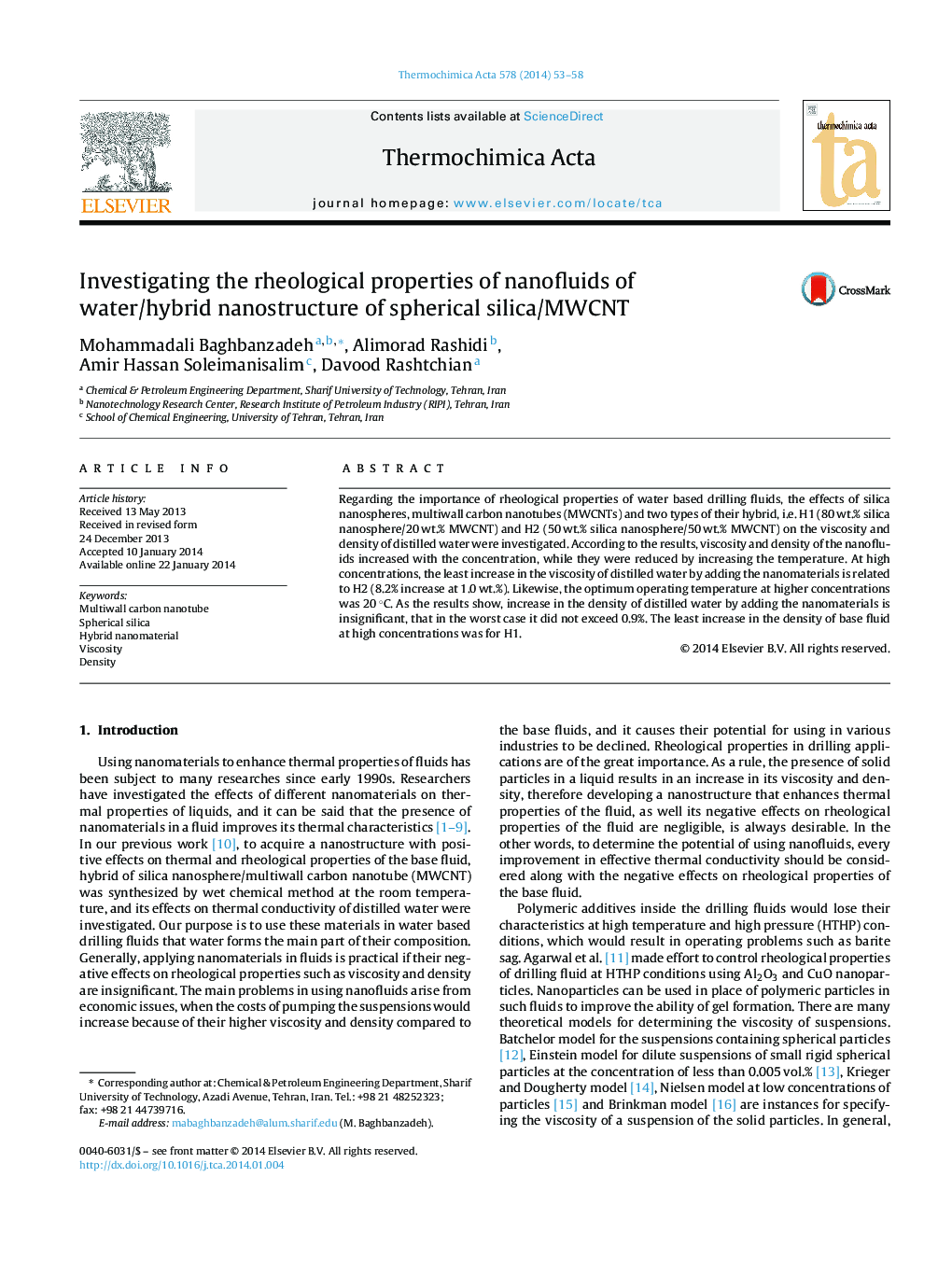| Article ID | Journal | Published Year | Pages | File Type |
|---|---|---|---|---|
| 673447 | Thermochimica Acta | 2014 | 6 Pages |
•A hybrid of silica nanosphere/MWCNT was synthesized by wet chemical method.•MWCNTs caused the most increase in viscosity and density of distilled water.•The least increase in viscosity belonged to H2 at the high concentrations.•The least increase in density belonged to H1 at the high concentrations.•The hybrid influenced rheological properties of water better than silica and MWCNT.
Regarding the importance of rheological properties of water based drilling fluids, the effects of silica nanospheres, multiwall carbon nanotubes (MWCNTs) and two types of their hybrid, i.e. H1 (80 wt.% silica nanosphere/20 wt.% MWCNT) and H2 (50 wt.% silica nanosphere/50 wt.% MWCNT) on the viscosity and density of distilled water were investigated. According to the results, viscosity and density of the nanofluids increased with the concentration, while they were reduced by increasing the temperature. At high concentrations, the least increase in the viscosity of distilled water by adding the nanomaterials is related to H2 (8.2% increase at 1.0 wt.%). Likewise, the optimum operating temperature at higher concentrations was 20 °C. As the results show, increase in the density of distilled water by adding the nanomaterials is insignificant, that in the worst case it did not exceed 0.9%. The least increase in the density of base fluid at high concentrations was for H1.
